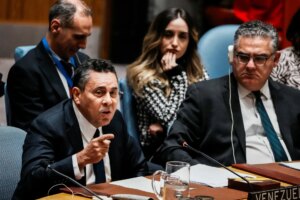
Donald Trump might well feel himself to be a prophet not honoured in his own country if within the space of nine days the Queens tycoon could intervene so decisively to win a midterm election at the other end of the hemisphere, only to see his native city fall to a Muslim socialist. New York City may not be an immediate concern for President Javier Milei as he headed for Miami in midweek with his annual United Nations duties already performed but last month’s bailout from the United States Treasury leaves his fortunes inextricably intertwined with Trump’s. Elections can go both ways (of which Buenos Aires Province offers ample proof in the past couple of months) but seven percent for the Republican mayoral candidate in New York City would not normally be considered a good sign for next year’s US midterms, which could undo much of the consolidation achieved in last month’s midterms here.
Many contemporary elections are won by intense minorities – little over a quarter of the electorate voted for La Libertad Avanza last month and around 20 percent of the New York citizenry for Zohran Mamdani last Tuesday – with the accent more often on backlash than endorsement. Were the Big Apple’s voters lured by a populist agenda of rent controls and free transport or was the message directed against an anti-immigrant Trump with three out of every five New Yorkers born in other countries? Either way there is a curious symmetry between Milei and Mamdani as outsiders against the “caste” from opposite ends of the political spectrum with Wall Street’s business elite infinitely more powerful than the “red circle” establishment here.
Milei seems to have interpreted last month’s unexpected midterm triumph as a mandate for more of the same, promoting his spokesman to Cabinet chief even if he could hardly deny a ministry to the election’s biggest winner, but commanding the loyalty of a quarter of the electorate for now does not leave much room for complacency. While making his umpteenth trip to the United States, Milei might reflect on the fact that he polled above LLA’s 40.7 percent nationwide average in the Buenos Aires half of the country last month and below inland – in contrast to 2023 when he lost both Buenos Aires City and Province in the first round with votes above 40 percent in four inland provinces doubling his support there. In short, he should start thinking of making more trips inland and less abroad if he wants to elude becoming another prophet not honoured in his own country.
When comparing the socio-economic fabric of last month’s 40-plus percent with the 55.6 percent of the 2023 run-off, it resembles less a wide range similar to the neoconservative Peronist Carlos Menem attracting both the richest and the poorest classes and more the traditional middle-class base of centre-right parties. Here it is not so much a question of broadening the political support, as so constantly urged from abroad, as broadening the agenda. Milei’s transformation drive is thus far limited to the trio of labour law, tax and pension system reforms (with the latter apparently on the backburner for the remainder of this term), primarily aimed at making it easier to operate businesses and thus encouraging investment. All well and good but, like balancing the budget and lowering inflation, it may prove a necessary but not sufficient condition for genuine development.
To reach beyond the business community to the other three-quarters of the electorate, Milei needs to launch long overdue reforms in such key areas as education and health. This goes far beyond such moves as taking a chainsaw to university spending with all three levels of education underperforming to prepare people for the jobs which the boosted investment is hoped to create. If universities refrain from entrance examinations and schools from repeating years at the expense of academic standards, education is heading nowhere – universities continue to churn out several times more students for professional careers in law or psychology than for engineering or computer science when they graduate at all. Healthcare drastically needs a streamlining from the overlap coming from a profusion of hospitals and the union-run obras sociales.
If Milei lost a battle in September’s Buenos Aires Province elections only to win the war last month, he needs to take care that this sweet victory does not end up as a battle won, only to lose the war further down the road.





